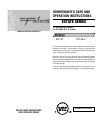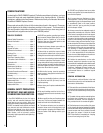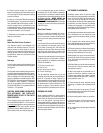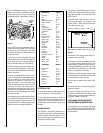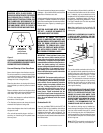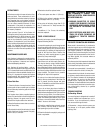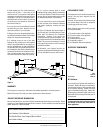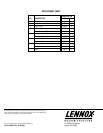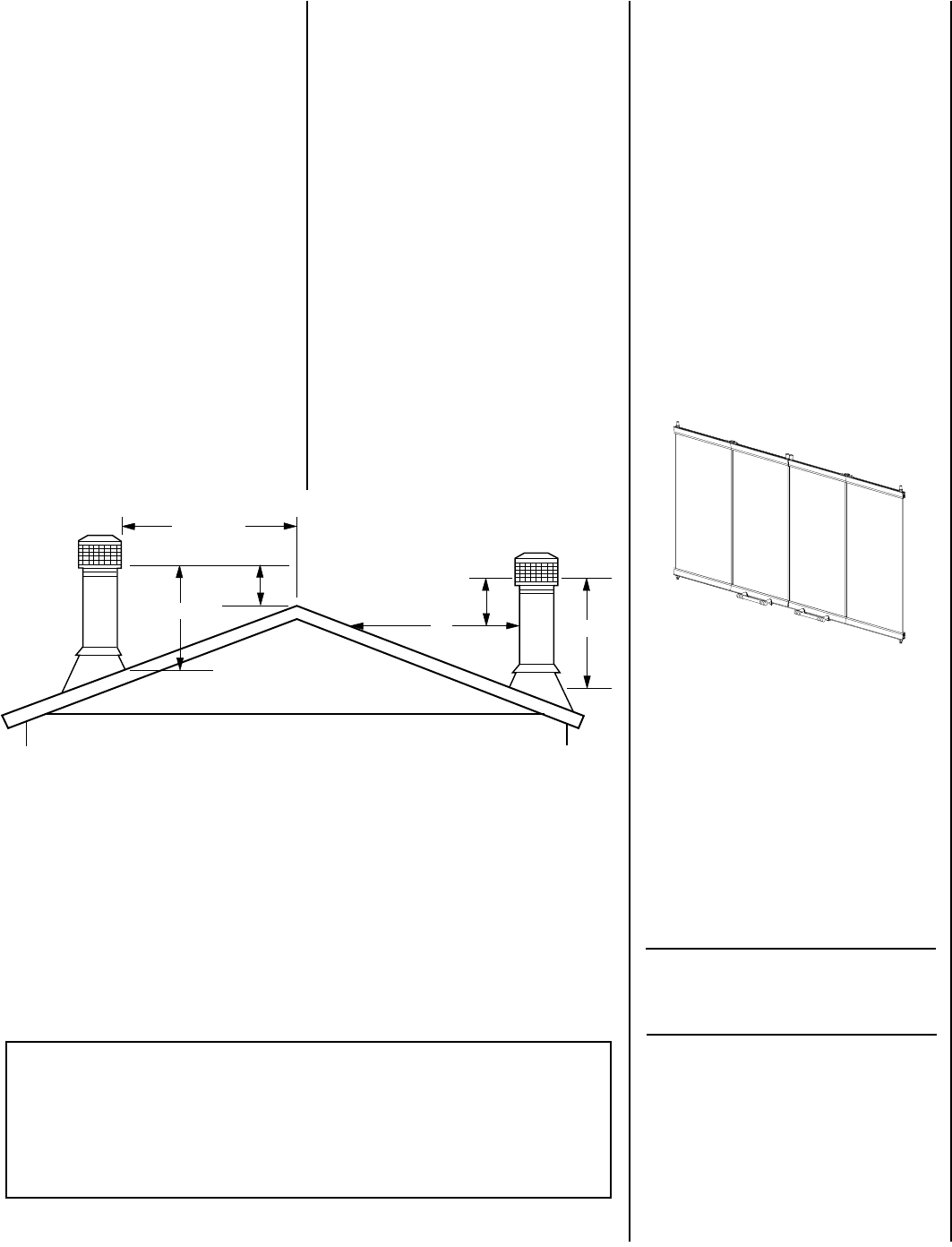
7
NOTE: DIAGRAMS & ILLUSTRATIONS NOT TO SCALE.
Figure 5
WARRANTY
This fireplace is covered by a limited warranty detailed separately from this document.
Retain this manual. File it with your other documents for future reference.
PRODUCT REFERENCE INFORMATION
We recommend that you record the following important information about your fireplace. Please
contact your Lennox dealer for any questions or concerns. For the number of your nearest Lennox
dealer, please call 1-800-9-LENNOX
REPLACEMENT PARTS
A complete parts list is found at the end of this
manual. Use only parts supplied from the
manufacturer.
Normally, all parts should be ordered through
your Lennox dealer. Parts will be shipped at
prevailing prices at time of order.
When ordering repair parts, always give the
following information:
1. The model number of the appliance.
2. The serial number of the appliance.
3. The part number.
4. The description of the part.
5. The quantity required.
6. The installation date of the appliance.
48LBF
48LBF-BB
Bi-Fold Doors 48LBF-BS
Bi-Fold Doors
Your fireplace can be fitted with beautiful bi-
fold doors. Model LBF doors are available for
use with these fireplace. Doors are easily fitted
to the fireplace opening. Model LBF doors
come with standard black finish. Model LBF-
BB doors have a beautiful bright brass finish.
Model LBF-BS doors have the striking look of
brushed steel.
10'
2' Min.
2' Min.
Less Than 10'
3' Min.
3' Min.
ACCESSORY COMPONENTS
Your Fireplace's Model Number _______________________________________
Your Fireplace's Serial Number ________________________________________
The Date On Which Your Fireplace Was Installed __________________________
Your Dealer's Name_________________________________________________
To ensure warranty and to prevent a potential
fire hazard, do not use any other doors on
these appliances.
6. Is a vent fan, exhaust hood or central
heating/cooling system stealing combustion
air from your fireplace? If their volume is high
enough, this can cause negative pressure and
an unwanted downdraft – and smoking.
7. Is your wood fuel too wet or unseasoned?
Or does it contain some chemical substance
that causes sputtering, smoking and toxic
fumes?
8.
Figure 5
illustrates the correct height of
your chimney top. It is unlikely that your instal-
lation does not adhere to the installation
instructions. However, if not correct, you
could experience an unusual downdraft. Usu-
ally, the best solution is to increase the chimney
height. This may also be necessary if nearby
trees, adjoining roof lines or a hill is causing a
downdraft condition.
9. Remember, your fireplace has been de-
signed as a supplemental heating device only,
it is not intended to heat your entire home.
2. When lighting your fire, a little smoke may
escape into the room – more likely if the
chimney is cold. To correct this, hold a lighted
newspaper up inside the firebox near the open
flue damper. This will turn around any down-
draft and clear the flue of cold air. As your log
fire burns below, the updraft will improve as
the chimney heats up.
3. Is your fire too far forward? Move it toward
the back with your poker. Keep the fire well
within the confines of your fuel grate.
4. Keep your fire up on the grate and the refrac-
tory below free of excessive ashes. The fire needs
plenty of air movement around the logs.
5. If smoking occurs an hour or two after
lighting the fire, perhaps your well-insulated
house is too airtight and there is scarcely any
way for replacement air to enter and feed the
fire. Check to see if your outside combustion air
kit (if installed) is open. Check outside to ensure
no obstructions are in front of exterior air entry.
Open a window slightly, open doors to one or
two rooms and see if this stops the smoking.



